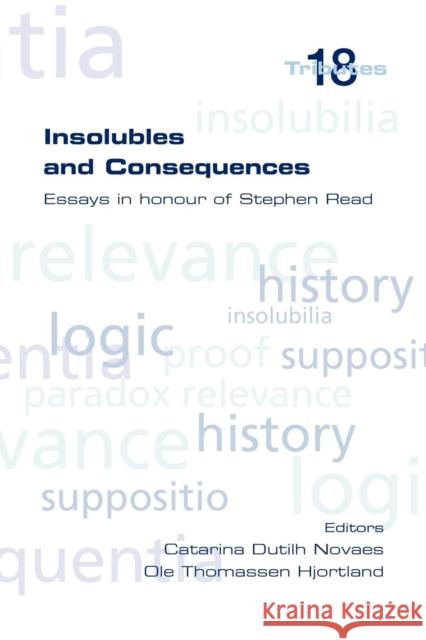Insolubles and Consequences » książka
Insolubles and Consequences
ISBN-13: 9781848900868 / Angielski / Miękka / 2012 / 284 str.
Throughout his career, Stephen Read has been at the forefront of research in the history and philosophy of logic. Distinctive of his work is his effort both to bring ideas from the history of logic into contemporary debates, and to apply formal logic in his historical analyses. He has made decisive contributions to the study of medieval logic, paradoxes, proof-theoretic semantics, relevant logic, logical consequence, and many other topics. On the occasion of his retirement, friends and colleagues join forces to honor him with a collection of papers reflecting his wide range of interests. Topics covered are: modern treatments of medieval solutions to the Liar paradox, reflections on logical consequence, proof-theoretic semantics, logical pluralism, studies in the history of logic (Latin and Arabic medieval logic in particular), among others. The collection reflects both the breadth and the depth of Read's unique approach to the history and philosophy of logic, containing papers by prominent researchers in these areas. As a whole, it strives to live up to the quality of Stephen's own work.
Throughout his career, Stephen Read has been at the forefront of research in the history and philosophy of logic. Distinctive of his work is his effort both to bring ideas from the history of logic into contemporary debates, and to apply formal logic in his historical analyses. He has made decisive contributions to the study of medieval logic, paradoxes, proof-theoretic semantics, relevant logic, logical consequence, and many other topics.On the occasion of his retirement, friends and colleagues join forces to honor him with a collection of papers reflecting his wide range of interests. Topics covered are: modern treatments of medieval solutions to the Liar paradox, reflections on logical consequence, proof-theoretic semantics, logical pluralism, studies in the history of logic (Latin and Arabic medieval logic in particular), among others.The collection reflects both the breadth and the depth of Reads unique approach to the history and philosophy of logic, containing papers by prominent researchers in these areas. As a whole, it strives to live up to the quality of Stephens own work.











